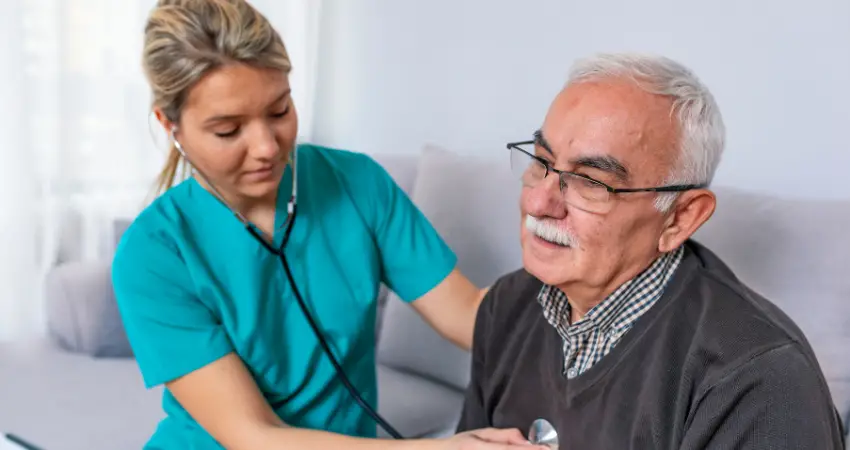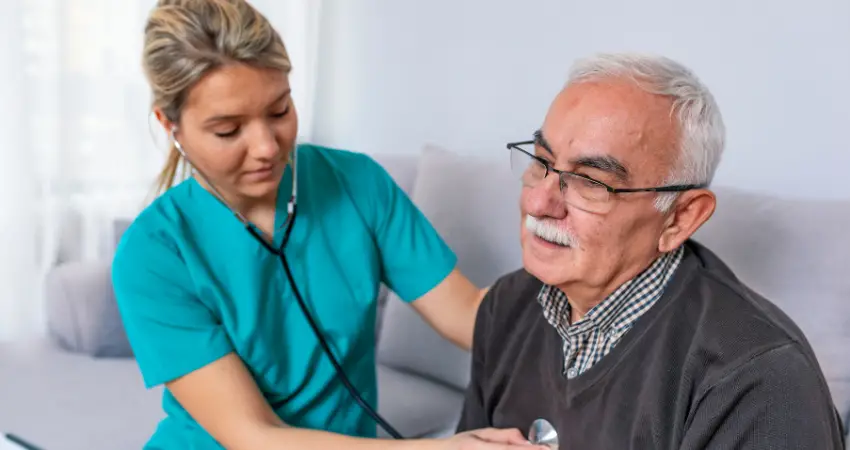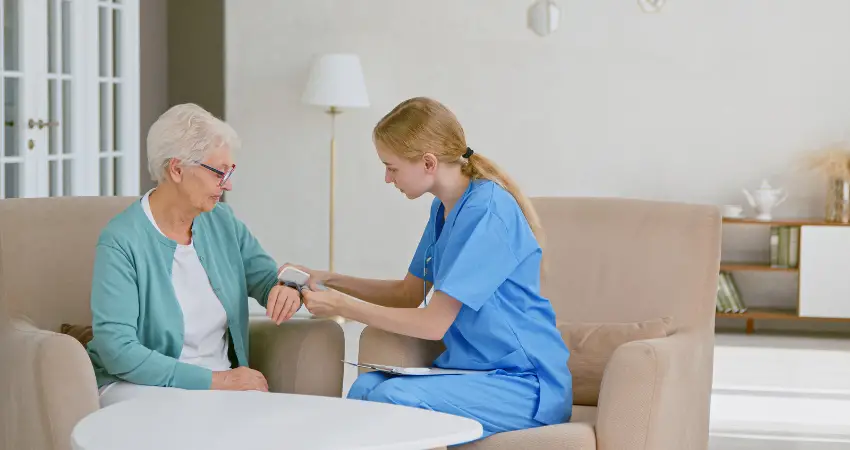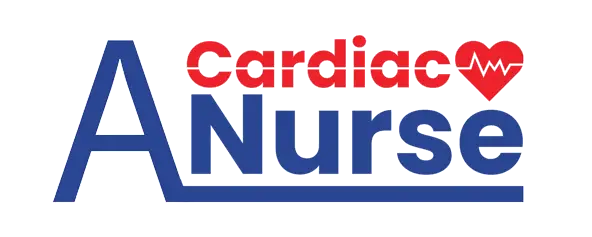What is a Lab Practicum in Nursing School?

What is a Lab Practicum in Nursing School?
A lab practicum in nursing school is a hands-on learning experience where students get to practice the skills they’ve learned in the classroom. Think of it as a “test drive” for nurses before they start working in real healthcare settings.
What is a Lab Practicum in Nursing School?
Builds Confidence
When you’re new to nursing, everything can seem a bit scary. You’re learning so many new things, from medical terms to how to use different tools. A lab practicum allows you to try these skills in a safe place. This helps you become more comfortable and confident. So when you step into a real healthcare setting, you’re not starting from zero.
Allows Safe Mistakes
Mistakes happen, especially when you’re learning. In a lab practicum, the stakes are much lower. There are no real patients, only mannequins or simulations. If you make an error, it’s an opportunity to learn, not a life-or-death situation. This makes it easier to try new things and learn from your errors without fear.
Puts Theory into Practice
You can read about how to take blood pressure a hundred times, but doing it is different. A lab practicum lets you take what you’ve learned in class and actually do it. You get to touch, feel, and use the medical tools and supplies. This kind of learning sticks with you longer than just reading from a book.
Prepares for Real-World Scenarios
Healthcare is unpredictable. Patients come in all sorts of conditions, and things can change quickly. In a lab practicum, you’ll often practice scenarios that mimic these real-world challenges. This helps you get ready for the kinds of situations you’ll face in an actual job. It’s like a practice run for the real thing.

Enhances Teamwork Skills
Nursing isn’t a solo job; it’s a team effort. During a lab practicum, you’ll work with classmates, just like you’ll work with other healthcare professionals in the future. You learn how to communicate clearly, share tasks, and make joint decisions. These teamwork skills are crucial for success in any healthcare setting.
Provides Professional Feedback
Instructors supervise lab practicums closely. They give you real-time feedback, helping you understand what you’re doing right and where you need to improve. This kind of detailed, expert advice is invaluable as you shape your nursing skills.
What Happens During a Lab Practicum?
During a lab practicum, students work in a setting that looks like a real hospital or healthcare facility. They practice things like taking vital signs, giving injections, and caring for patients. They also learn how to use medical equipment. Teachers or instructors are there to guide them, answer questions, and provide feedback.
How is a Lab Practicum Different from Clinical Rotations in Nursing School?
Real Patients vs. Simulated Environment
The most noticeable difference is where the learning happens. In clinical rotations, you’re in an actual hospital or healthcare facility, working with real patients. During a lab practicum, you’re usually in a simulated environment within your school, practicing on mannequins or using computer simulations.
Level of Supervision
In a lab practicum, your instructors are right there with you, watching closely and ready to provide immediate feedback. During clinical rotations, you might be under the supervision of a registered nurse or another healthcare professional who has other responsibilities as well. So, the level of focused instruction might be less.
Risk and Responsibility
Clinical rotations involve higher stakes because you’re dealing with real people who need care. Mistakes can have more serious consequences. In a lab practicum, the setting is designed for learning and making mistakes. The risk is minimal because you’re not working with real patients.
Scope of Practice
During clinical rotations, you’ll get a broader view of nursing duties, as you’ll likely rotate through different departments and may even assist in emergencies. In a lab practicum, the focus is often narrower, aimed at mastering specific skills or procedures.
Degree of Complexity
Clinical rotations expose you to a wide range of medical conditions and patient-care scenarios that can be complex and unpredictable. Lab practicums, on the other hand, are more controlled. You might work on one or two specific tasks at a time, like drawing blood or inserting an IV.

Feedback and Evaluation
In a lab practicum, you’ll get immediate and detailed feedback from your instructors. During clinical rotations, feedback might be less immediate and less detailed because it comes from busy healthcare professionals juggling multiple responsibilities.
Opportunity for Reflection
Because lab practicums are learning-focused, there’s often more opportunity for reflection and discussion with instructors and peers. In clinical rotations, the fast-paced environment might not provide as much time for reflection.
In summary, both lab practicums and clinical rotations are essential for nursing education, but they serve different purposes. Lab practicums are controlled, focused learning environments designed for skill-building and immediate feedback. Clinical rotations are real-world experiences aimed at exposing students to the full scope of nursing responsibilities and complexities. Both are crucial steps in becoming a skilled, confident nurse.
Key Skills You’ll Practice
Here are some skills you might practice in a lab practicum:
- Basic care like bathing and feeding patients
- Taking blood pressure, temperature, and other vital signs
- Using medical equipment
- Communication skills for interacting with patients and healthcare teams
Tips for Success
- Be Prepared: Review your notes and know what skills you’ll be practicing.
- Ask Questions: Don’t be afraid to ask for help or clarification.
- Take it Seriously: Treat it like a real job because one day, it will be!
In summary, a lab practicum is a crucial part of nursing education. It’s where you get to take your book knowledge and turn it into real skills. So, take it seriously, be prepared, and use the opportunity to become the best nurse you can be.
Sources
Related Articles
Nursing diagnosis for heart failure
Care plans for Parkinson disease
Phyllis Robinson MSN, RN is a Registered Nurse of 27 years. Phyllis is passionate about the prevention and healing of heart disease using traditional and alternative methods. She has experience in emergency room, telemetry, infusion, and critical care. Phyllis currently practices in an intensive care unit.

